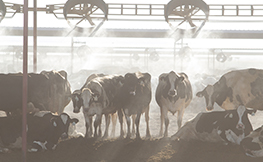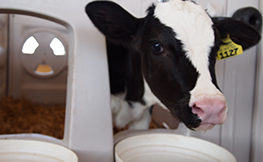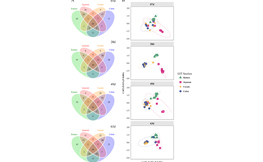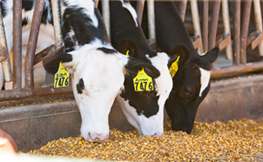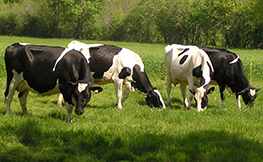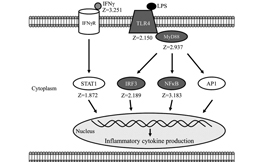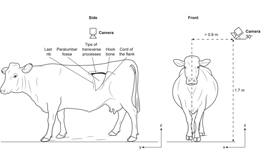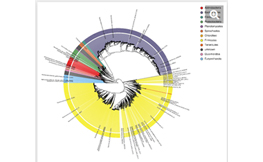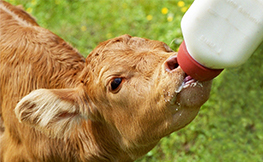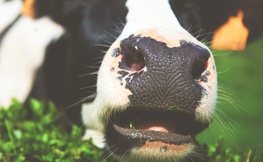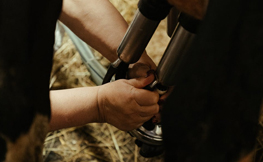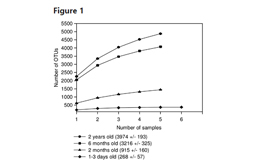Rumen Health Technical Guide
Leading ruminant experts have written the Rumen Health Technical Guide. This resource is free to veterinarians, nutritionists and producers, request a copy today.
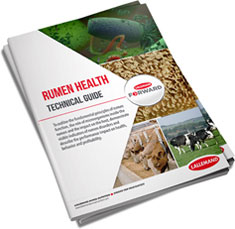 Get a copy
Get a copy
Management of the Lower Gut Microbiota
Probiotics are nutritional solutions to help maintain the ruminant lower gut microbiotaGlossaryView allMicrobiota
A microbiota is the whole of the ecosystem (bacteria, yeast, fungi and viruses) living in a specific environment. Intestinal microbiota was previously called “intestinal flora.”. It can help support gut development, favor a well balanced microbiota and orientate it toward positive microorganisms and support part of the immune system development, which is hosted into the gut.
For young animals, optimal colostrum intake, balanced microbiota and proper immune function helps to reduce the risk that calves will experience diarrheas, specifically during their immunity gap.
Supporting calves with microbial solutions can be a responsible way to help improve resilience against weaning challenges such as diarrhea, low average daily gain, or respiratory troubles.
Calf diarrhea is a visible sign of a trouble of the ruminant digestive system.
Neonatal calf diarrhea is a frequent cause of growth problems and death in newborn calves and leads to economic losses on the farm. Diarrhea is responsible for 57% of weaned calf mortality and 20% of calf mortality can lead to a 38% reduction in net income. In the long term, neonatal diarrhea can also reduce the growth performance of animals, reduce reproductive performance and milk production in late lactation (Du W. et al., 2023).
Calf diarrhea can have infectious origins, can be due to unadapted feed that can’t be digested by the immature microbiotaGlossaryView allMicrobiota
A microbiota is the whole of the ecosystem (bacteria, yeast, fungi and viruses) living in a specific environment. Intestinal microbiota was previously called “intestinal flora.” and calf digestive system or due to an imbalance of the microbiota that can have been disrupted by stresses or antibiotic treatments.

To understand the pathogenesis of calf diarrhea, let’s take the example of enterotoxigenic Escherichia Coli, one of the main pathogens causing diarrhea in calves. ETEC colonizes the small intestine and secretes enterotoxins. The effect of enterotoxins is an efflux of negatively charged ions and water, and a blockage of NaCl absorption, leading to diarrhea (Hulbert L.E., Moisá S.J., 2016).
Probiotics can help to balance the lower gut microbiotaGlossaryView allMicrobiota
A microbiota is the whole of the ecosystem (bacteria, yeast, fungi and viruses) living in a specific environment. Intestinal microbiota was previously called “intestinal flora.” of young calves to support its current and future ruminant digestive system
Early intervention in ruminant lower gut microbiota through the addition of probiotics is essential to promote optimal growth and metabolism. Evidence suggests that probiotics can help reduce the risk and incidence of calf diarrhea, improve average daily weight gain and improve feed efficiency (Du W. et al., 2023).
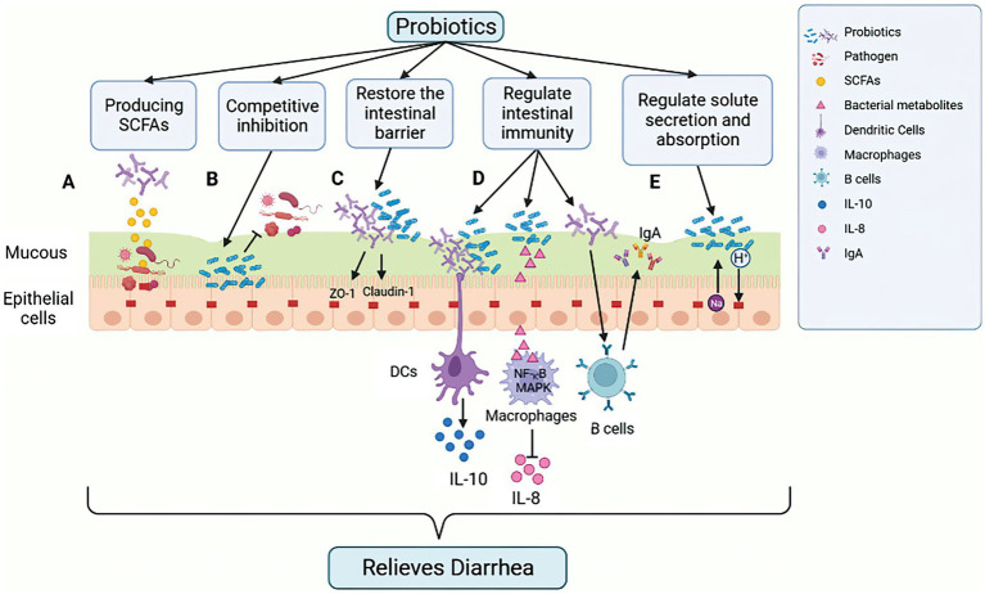
- Competitive inhibition of pathogens: probiotics can help reduce the colonization of pathogens by binding to receptor sites in the ruminant digestive system (Du W. et al., 2023).
- Production of beneficial substances: probiotics produce short-chain fatty acids (SCFAs) that promote a healthy intestinal environment and help inhibit the growth of pathogenic bacteria (Du W. et al., 2023).
- Restoration of the ruminant intestinal barrier: probiotics can help increase the production of tight junction proteins such as ZO-1 and occludin, thereby strengthening the integrity of the ruminant intestinal barrier and reducing permeability to pathogens (Du W. et al., 2023).
- Regulation of intestinal immunity: probiotics help modulate the innate and adaptive immune response, stimulating cytokine production and reducing pro-inflammatory cytokines while increasing IgA production (Du W. et al., 2023).
- Regulation of the secretion and absorption of solutes: probiotics influence the expression of electrolyte transport proteins and regulate the transport of Na+ and Cl- (Du W. et al., 2023).
The development of the ruminant lower gut microbiota in calves is essential, particularly during the immune transition period. If you would like to learn more about the calf’s immune transition and its implications with the ruminant digestive system, click here.
